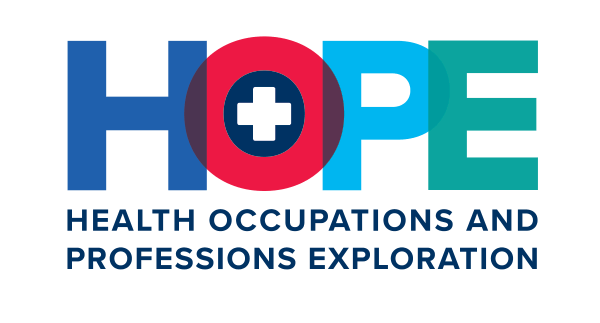Planning an Experiential Learning Activity for HOPE
Thank you for supporting Career Pathways and helping grow the next generation of healthcare professionals! By sharing your background and experience, you are opening students’ eyes to paths they may not have considered and helping them think more deeply about the path they are choosing for themselves.
Please use this site as a planning tool to help you think through the experience you will provide to students at HOPE. For more assistance, reach out to CareerPathways@UWHealth.org
Audience: Small groups of high school students in grades 10, 11, or 12. Some will know exactly what they’re interested in, some have no idea other than that they’re curious about healthcare careers. Many of our HOPE attendees come to us from historically under-represented or under-resourced communities, so it’s important to develop a presentation and activity that is inclusive, representative, and culturally humble.
Time: Approximately 20-25 minutes per rotation
Goal: Lead students through an experience that will help them learn about your career or field and see what a “day in the life” is like.
What are the Main Parts of the Activity?
A good experiential learning activity will follow this basic template:
A. Introduction (3 minutes)
Think about who you were in high school and what you wanted to be when you grew up. Try to address the following questions at the beginning of your presentation:
- Where are you originally from? What personal background are you comfortable sharing?
- What did you want to be when you grew up? Did you always think you would work in healthcare? How did you find your way into what you do now?
- What was your high school or college experience like when working with academic advisors or mentors?
- What do you wish you knew before starting your career path and what would you tell your high-school self about what you do?
B. Day in the Life (3 minutes)
Provide students with an idea of what your usual day is like. Try to address the following questions:
- What type of healthcare job is it? (Direct, Indirect, Admin or Support, etc)
- What do you do on a daily basis?
- What characteristics do people typically have that work in this career?
- What are the general work hours and locations?
- What do you like about your job? What are some challenges about your job?
C. Hands-on Activity (10-15 minutes)
This should be the core of your presentation! What’s something engaging and hands-on that you can have students do that will give them a solid idea of what your work is like? Here are some ideas:
- Case Studies (present situations that you’ve encountered and ask students to talk about how they would handle them, then share what actually happened or how a professional would think about handling those situations)
- Create an online trivia game using a platform like Kahoot
- Bring in models of body parts or systems that you work with
- Bring in tools, instruments, or other materials that you use on a regular basis for students to see and interact with
- Show videos that can present a day-in-the-life, or show a procedure. Keep in mind that your audience is 15-18 years old so make sure that your content is age-appropriate.
- Look for online resources such as Teachers Pay Teachers (filter for free resources) or Google “Hands on activities for [your career or field]”. (Adding “PDF” to your search can help.
- Consult with colleagues and don’t hesitate to reach out to the Career Pathways (CareerPathways@UWHealth.org) team to collaborate in the design of an activity
D. Closure (5 minutes)
Take time at the end to reflect on your activity and what you wanted students to get out of the experience. Answer questions that students have, and let them know about next steps they can take if they are interested in pursuing your career or field.
Here are some things to keep in mind:
- Get to the hands-on activity as quickly as possible. Don’t spend a long time talking at the start of your session. You have limited time, and sit-and-get can be disengaging for students. Speak less, do more, and use the activity as a platform to share your high-level takeaways.
- Bring handouts with information about your career or field and career/educational pathways for students to follow. You can also leverage the HOPE book page for your career or field.
- Not all of our students are interested in the “ick” aspects of healthcare, so if your presentation involves sights/smells/touches of blood, body fluids, organs, or physical interaction, please let students know in advance so they can opt-out of participating.
